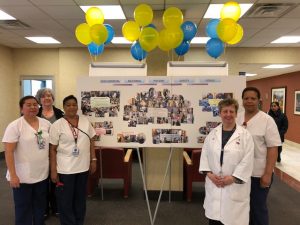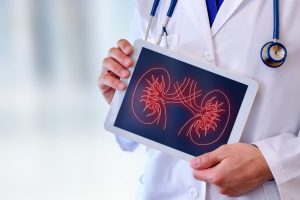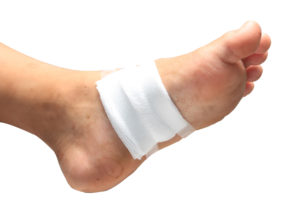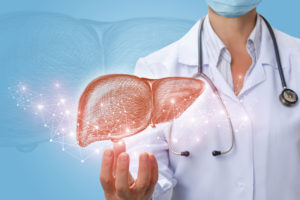March is Women’s History Month. In recognition of this special observance, the MediSys Health Network would like to honor a woman who is very important to Jamaica Hospital Medical Center and Flushing Hospital Medical Center, Dr. Sabiha Raoof.
 Dr. Raoof began her career at MediSys as an attending physician in 1997 after completing her radiology fellowship training. According to Dr. Raoof, “I was young and full of energy, but I was also a mother of two young children, and that aspect of my life has always been very important to me. Working for MediSys allowed me to maintain a balance between my professional goals and my role as a mother. I never had to compromise my priorities and that gave me the opportunity to grow and thrive professionally. “
Dr. Raoof began her career at MediSys as an attending physician in 1997 after completing her radiology fellowship training. According to Dr. Raoof, “I was young and full of energy, but I was also a mother of two young children, and that aspect of my life has always been very important to me. Working for MediSys allowed me to maintain a balance between my professional goals and my role as a mother. I never had to compromise my priorities and that gave me the opportunity to grow and thrive professionally. “
After working for a few years as an attending physician, Dr. Raoof was appointed as the Chairperson of Radiology at Jamaica Hospital in 2000 and then at Flushing Hospital in 2001. Dr. Raoof added “I am so happy that I was given the opportunity to build the department and I am so proud of what we have been able to achieve together.” Under her guidance, the Radiology Departments at both hospitals have earned the Diagnostic Centers of Excellence designation from the American College of Radiology.
Through the years, Dr. Raoof has taken on many additional roles in the healthcare industry that has brought a great deal of positive visibility to the network. She currently serves as the Vice Chair for the American College of Radiology’s Quality Experience Committee and is a member of their Commission on Clinical Decision Support. She has also been working with CMS for the last four years, initially serving as a national faculty member for the Transforming Clinical Practices Initiative and now serves as one of the Clinical Champions for the Quality Payment Program.
Providing the highest quality care to our patients has always been a major focus for Dr. Raoof, so when she was appointed as the Chief Medical Officer for MediSys in 2017, her main goal was to use the position to improve the quality of care throughout the organization and to do so in a patient and family centered approach to keep patient safety in focus. AS CMO, she has been the driving force behind many initiatives designed to improve the patient experience.
While Dr. Raoof appreciates the opportunities she has been given in the MediSys Health Network, she realizes that many other women are not as fortunate. “Even today, we have under-representation of female physicians in leadership positions in the healthcare industry. I feel lucky to work for this organization and I commend our administration for being so forward thinking and allowing the most qualified people to progress to leadership roles throughout the organization without any bias against gender, culture, religion or ethnicity.”
Women’s History Month is very important to Dr. Raoof. It not only allows her to thank the many women in her personal and professional life who have supported and been an inspiration to her, but it also serves as an opportunity for her to encourage her female colleagues to step up and be willing to lead. According to Dr. Raoof, “Women’s History Month is a time to celebrate the tireless half of our population. Women are our future leaders, innovators, and peace-makers. This is a month to celebrate our progress in the face of historic challenge and to dream of our future. “
All content of this newsletter is intended for general information purposes only and is not intended or implied to be a substitute for professional medical advice, diagnosis or treatment. Please consult a medical professional before adopting any of the suggestions on this page. You must never disregard professional medical advice or delay seeking medical treatment based upon any content of this newsletter. PROMPTLY CONSULT YOUR PHYSICIAN OR CALL 911 IF YOU BELIEVE YOU HAVE A MEDICAL EMERGENCY.








